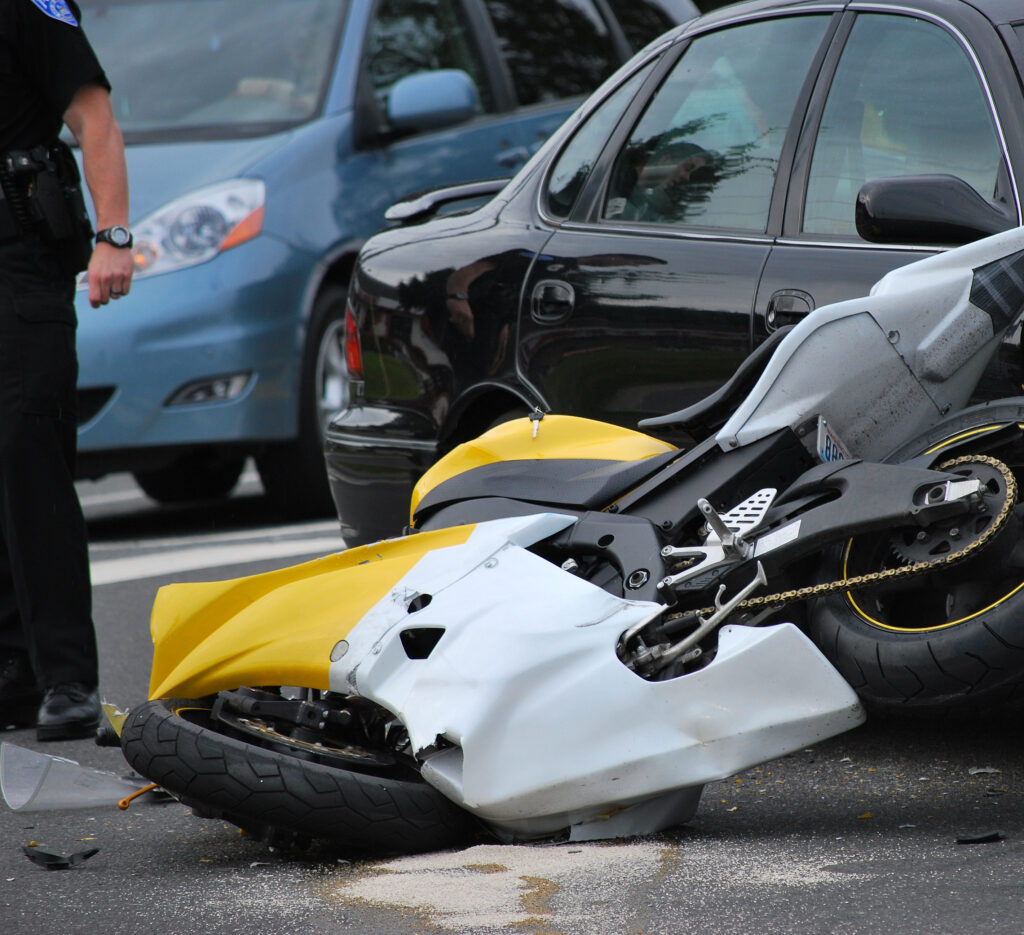
If you are involved in a motorcycle accident, please immediately refer to the following five steps:
- Get out of traffic.
- Keep your helmet on.
- Call 911 Emergency Services.
- Record visual and verbal evidence.
- Seek medical attention.
Higher gas prices promote an increase in motorcycle sales. For the second year in a row, on-highway, off-highway, and dual-purpose motorcycles have dramatically increased sales.
More people than ever invest in motorcycles and get out more frequently to enjoy a ride.Motorcycle riding on a beautiful day is symbolic of freedom and often delivers both physical and emotional pleasure with a spike of adrenaline. But if a motorcycle accident disrupts your life, you aren’t alone. In 2020, 1,856 motorcyclists were seriously injured in Texas, and many to no fault of their own.At KRW Lawyers, we have serviced thousands of personal injury victims involved in motorcycles and vehicle accidents throughout Texas. If you are an accomplished rider or a new motorcycle owner, please refer to the following five essential steps to consider IF you should ever find yourself in a motorcycle accident.
Step One: Get Out of Traffic
After an accident, get yourself and your passenger safely out of traffic. Remain calm. If severely injured, lie still and do not force your way up.
Step Two: Keep Your Helmet On
While you might want to take your helmet off, it’s essential to keep your gear on after an accident. Keep your helmet on until a medical professional examines you—this can stop you from making injuries worse. Even if you don’t think you’re injured. That’s because shock and adrenaline may numb any severe injuries.
Step Three: Call 911 Emergency Services
Always make sure to call 911 emergency services once you’re out of the way of traffic. Trained first responders can quickly assess if you have experienced injuries from one impact or multiple impacts and effectively communicate this to law enforcement and medical professionals. (Many first responders are trained to help two-wheel trauma victims).Please communicate to the police at the scene to best assess the immediate details of the accident. Please identify any vehicles involved. Please stay calm and collaborative.
Step Four: Record visual and verbal evidence
If you’re able to record, photograph, and video the motorcycle accident scene digitally: review your surroundings; photograph the license plates of all vehicles involved; photograph or video capture the immediate area, your property, your injuries, street signs, skid markings, property damage, and first responder and police vehicle identification.You may include things like:
- Verbal notes – what you or others say to each other or to the police.
- Videos – any recording of the accident, especially from helmet cams, GoPros, and mobile dashboard devices. (Useful equipment to add to your motorcycle).
- Photos – pictures of the scene and damages.
- Photograph identification cards, licenses, insurance cards, and any information needed to contact those involved.
- Police reports about the accident.
- Witness statements and related contact information.
Do not admit fault, or if you are unclear, do not attempt to share incorrect information. Instead, stay focused on getting medical attention.IF you interact with authorities, other drivers, or first responders, do not offer an apology, statements of embarrassment, or shame. Instead, focus on calling your guardian, partner, or loved one and make them aware of where you will be for medical evaluation.If you’re too severely injured to collect evidence, you can obtain a copy of the police report later on.
Step Five: Seek Medical attention
After an accident, make sure you see a doctor—even if you don’t think you’re injured. To make sure that you’re able to get on the path to recovery as soon as possible, a doctor will probably check for:
- Head injuries, like concussions
- Broken bones
- Internal injuries or internal bleeding
- External injuries, like cuts, scrapes, or abrasions
- Whether you’ll need physical therapy
Treatment for these and other injuries can be costly, even with insurance. Ensure to keep track of all the paperwork associated with medical services and obtain copies of any paperwork before leaving the hospital. Record the doctors’ names and contact information, and include any critical medical testimonials.
Contact Us Today
After a motorcycle accident, you may face an overwhelming accumulation of medical bills, multiple insurance requests and calls, missed work and lost wages, physical pain, and emotional disruption.With all of these unfortunate challenges, it’s time to contact a lawyer who can help you throughout the process. A proven team of attorneys will assemble the most powerful case possible and address your pain and suffering—including complex injuries, trauma, loss of work, and complicated insurance disputes.At KRW Lawyers, we work with you through your case–from your free and confidential evaluation to your settlement–without backing down. An accident can disrupt your life, but a powerful lawyer by your side can provide you the time and space to focus on healing.Call KRW Lawyers, “Your one powerful law firm,” who will:
- Collect evidence to support your case
- Conduct powerful negotiations
- Provide you and your case personalized attention
- Leverage over 100 years of combined experience to work for you
KRW Lawyers is a proven legal team that fights hard for motorcycle accident victims. Give us a call at 1-432-239-1224 and schedule a free consultation today.
